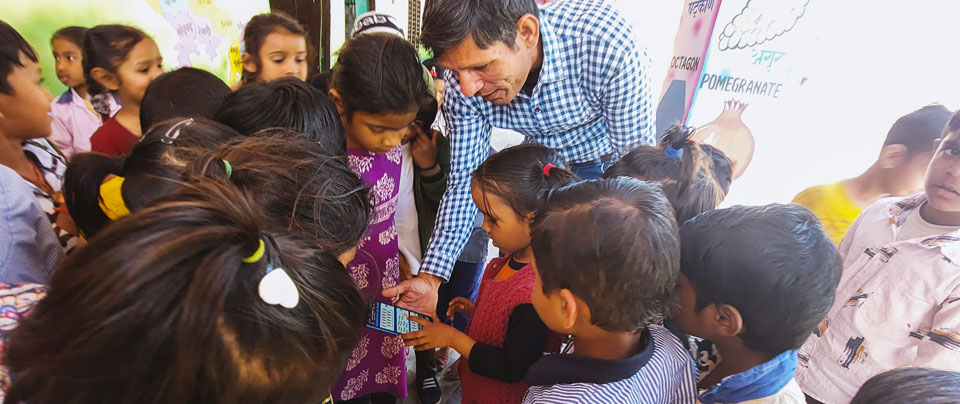Kenya’s PAL Network has made the list of six winners of the Wise Innovation Summit for Education 2023 (WISE) Awards prize of $20, 000 per winner among other support programmes from the Qatar Foundation.
PAL Network created the International Common Assessment for Numeracy (ICAN) assessment tool as a response to the demand for a comparable, affordable evaluation that takes into account the realities of the Global South. The Global Proficiency Framework aligns with ICAN, a straightforward and adaptable tool that assesses children’s basic numeracy, which is intended to track the implementation of SDG 4.1.1 (a).
The 2023 WISE Awards Winners comprise six projects hailing from five distinct countries. These projects have been recognised for their innovative strategies in addressing critical educational challenges and remarkable positive social contributions. It is noteworthy that in this year’s cycle, a total of 404 projects were submitted or nominated for the prestigious WISE Awards.
Here are the six winners of the WISE Awards 2023
1. PAL Network
Background
This project stands as one of the distinguished 2023 WISE Awards winners.
In the realm of education, the establishment of common global goals, epitomised by Sustainable Development Goal 4, has created a demand for comparable data that can effectively monitor the quality of education. This places mounting pressure on many low and middle-income countries to participate in existing international and regional assessment programmes.
These assessment models and methods, however, have primarily emerged from the context of Global North countries. Their characteristics often differ significantly from those of countries in the Global South. The latter frequently grapple with various challenges, including several decades of universal enrollment, incomplete school records, and a notable percentage of parents who may not be literate, thus limiting their ability to support their children’s learning.
Furthermore, these assessments are primarily designed to inform policymakers and education planners, rather than educators, parents, and other stakeholders at the grassroots level. Consequently, they fail to provide actionable insights at lower levels of performance, where a significant portion of children in the Global South are typically situated.
To address these challenges, school systems in the Global South urgently require a different kind of evidence. In particular, the measurement of foundational reading and numeracy skills in early primary grades is vital for identifying and addressing issues early in a child’s educational journey.
Solution & Approach
Responding to this need, the PAL Network has devised a new assessment tool, known as ICAN (International Common Assessment of Numeracy). ICAN is a user-friendly, scalable tool that focuses on measuring children’s foundational numeracy skills. It has been tailored to monitor progress toward achieving SDG 4.1.1 (a) and is aligned with the Global Proficiency Framework.
Impact & Future Development
Buoyed by the success of ICAN, the PAL Network is currently in the process of developing ELANA (Early Language & Literacy and Numeracy Assessment), an innovative initiative in common assessments. ELANA comprises two primary components: an expanded numeracy assessment building upon ICAN’s foundations and a literacy assessment that evaluates skills in oral language, decoding, and reading comprehension.
This assessment is designed to address children between the ages of 4 and 10, thereby bridging the learning continuum from preschool to the initial years of primary school. It will provide valuable estimations related to the achievement of SDG 4.1.1 (a) and the academic learning component of SDG 4.2. The final form of ELANA will be implemented through a digital application and will incorporate adaptive features, further enhancing its effectiveness in serving educational objectives.
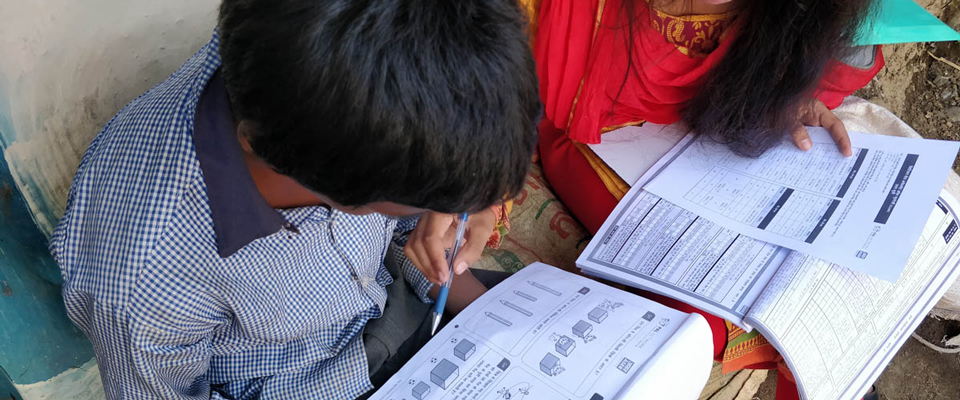
Context
This project proudly holds the honour of being one of the esteemed 2023 WISE Awards winners.
Establishing a Strong Foundation
Founded in 2006, ATIC stands as the preeminent association and the impassioned advocate for Moldova’s ICT industry. It steadfastly champions the growth of the ICT sector within the Republic of Moldova through fostering dynamic partnerships among companies, akin organisations, government entities, state institutions, and international bodies.
With 16 years of experience in the domains of science, STEM (Science, Technology, Engineering, and Mathematics), and business, ATIC has garnered a wealth of expertise in executing a diverse array of educational and entrepreneurial initiatives.
Notably, one of ATIC’s most triumphant endeavours is the Tekwill project and its associated educational undertakings. Tekwill has been meticulously structured as a national public-private partnership designed to address the ICT industry’s pressing human capital deficit and to bolster the growth of the entrepreneurship ecosystem.
Solution and Approach
The “Tekwill in Every School” (TiES) initiative represents one of Moldova’s most expansive educational programmes, aimed at affording Moldovan students equal educational opportunities that are thoughtfully aligned with the needs of the IT Sector. The project is masterfully executed by ATIC, in collaboration with the Ministry of Education and Research, the eGovernment Agency, and with the invaluable support of international development partners such as USAID, Sweden, the European Union, and UNDP Moldova.
In the short span of three years since its inception, TiES has successfully crafted eight courses (centred around the professions of the future) that are readily accessible at no cost on our eLearning platform, which can be found at https://tekwill.online/. These courses are offered in both Romanian and Russian languages, further ensuring inclusivity. At present, over 1,000 teachers hailing from 333 schools across the nation have incorporated the Tekwill courses into their curricula as elective subjects.
Impressively, more than 50,000 students have delved into at least one Tekwill course, enabling them to acquire practical skills and knowledge related to the careers of the future, such as coding, software development, AI, creative industry skills, social-emotional skills, and entrepreneurship, all beginning as early as the 7th grade.
Impact and Future Development
The TiES program has made remarkable inroads, extending its reach to 60% of the country’s high schools. We aspire to connect up to 90 per cent of all Moldovan high schools to the TiES program by the year 2024. This ambitious target implies the onboarding of an additional 101 high schools in the years 2023-2024. Achieving this objective would signify that every third pupil in Moldova would have the opportunity to access modern, market-driven curricula, and courses that will equip them for future success upon their graduation as young specialists.
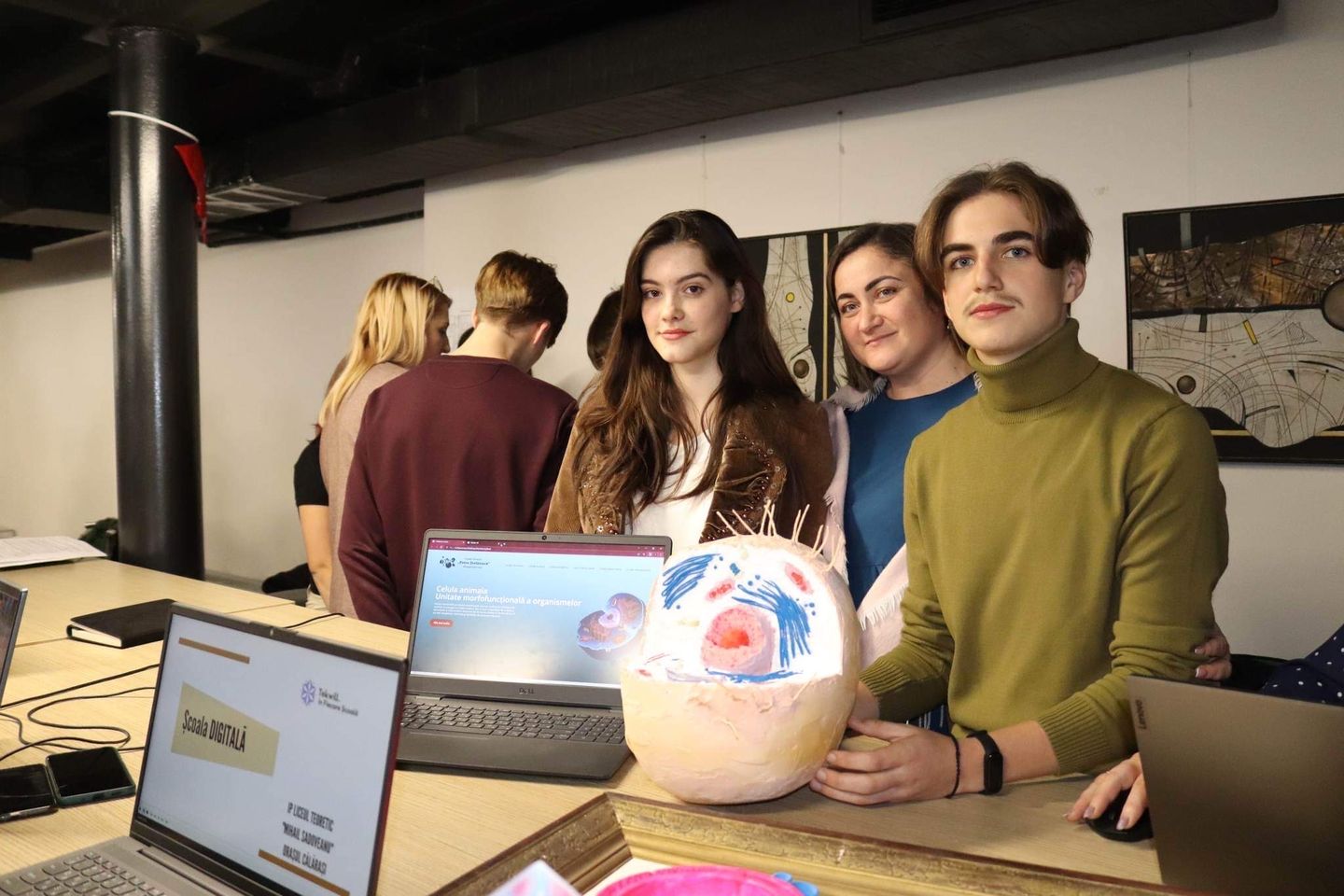
3. NaTakallam: A Different Kind of Language Learning
Addressing the Social Challenge
This project proudly stands as one of the distinguished 2023 WISE Awards winners.
A Global Issue
Amid the global refugee crisis, only a mere 1 per cent of displaced individuals are granted the opportunity for formal resettlement. They receive a work permit and a chance to rebuild their lives. The overwhelming majority of highly educated refugees, alongside their host communities, face the dire predicament of having no access to sustainable income.
In response to this critical challenge, NaTakallam harnesses the power of technology to bridge this gap. Refugees are engaged as tutors, cultural exchange instructors, and translators, offering valuable language services while also fostering intercultural connections. Initially conceived to support Syrians in teaching Arabic, these sessions have expanded to include languages such as Spanish, French, Persian, Armenian, Kurdish, Russian, and Ukrainian.
Solution and Approach
NaTakallam collaborates with K12 schools and universities, providing students with access to exceptional and innovative language sessions. These offerings encompass a diverse array of affordable courses and flexible programs tailored to meet the unique needs of students. Additionally, NaTakallam delivers sessions explicitly designed to combat stereotypes against refugees and to delve beyond the surface-level narratives.
Pedagogically, their approach bolsters the learning process by offering clear, native speaker-led input, facilitating interactive sessions that emphasise communication, and providing exposure to various dialects. This holistic approach ensures that students receive a genuinely personalised language-learning experience.
Furthermore, NaTakallam offers an Integrated Curriculum in Arabic, developed in partnership with the Head of the Arabic Department at Cornell University. This curriculum is meticulously crafted to authentically reflect the use of the language in its cultural context.
Impact and Future Development
In the year 2023, NaTakallam has set its sights on launching a program tailored for Francophone students who are embarking on the journey of learning Arabic. This initiative will provide them with conversational practice led by native speakers, serving as a complement to their university and secondary school language studies.
Looking ahead to 2025, NaTakallam is charting a steady growth trajectory to achieve USD$2.5 million in annual revenue. Their approach to language learning services hinges on three core strategies:
Offering synchronous and asynchronous video sessions to enhance the learning experience.
Launching targeted marketing campaigns, with a specific focus on individuals seeking to learn a language while also making a positive, long-term impact.
Diversifying their language offerings and potentially introducing new online teaching services to broaden their reach and impact.
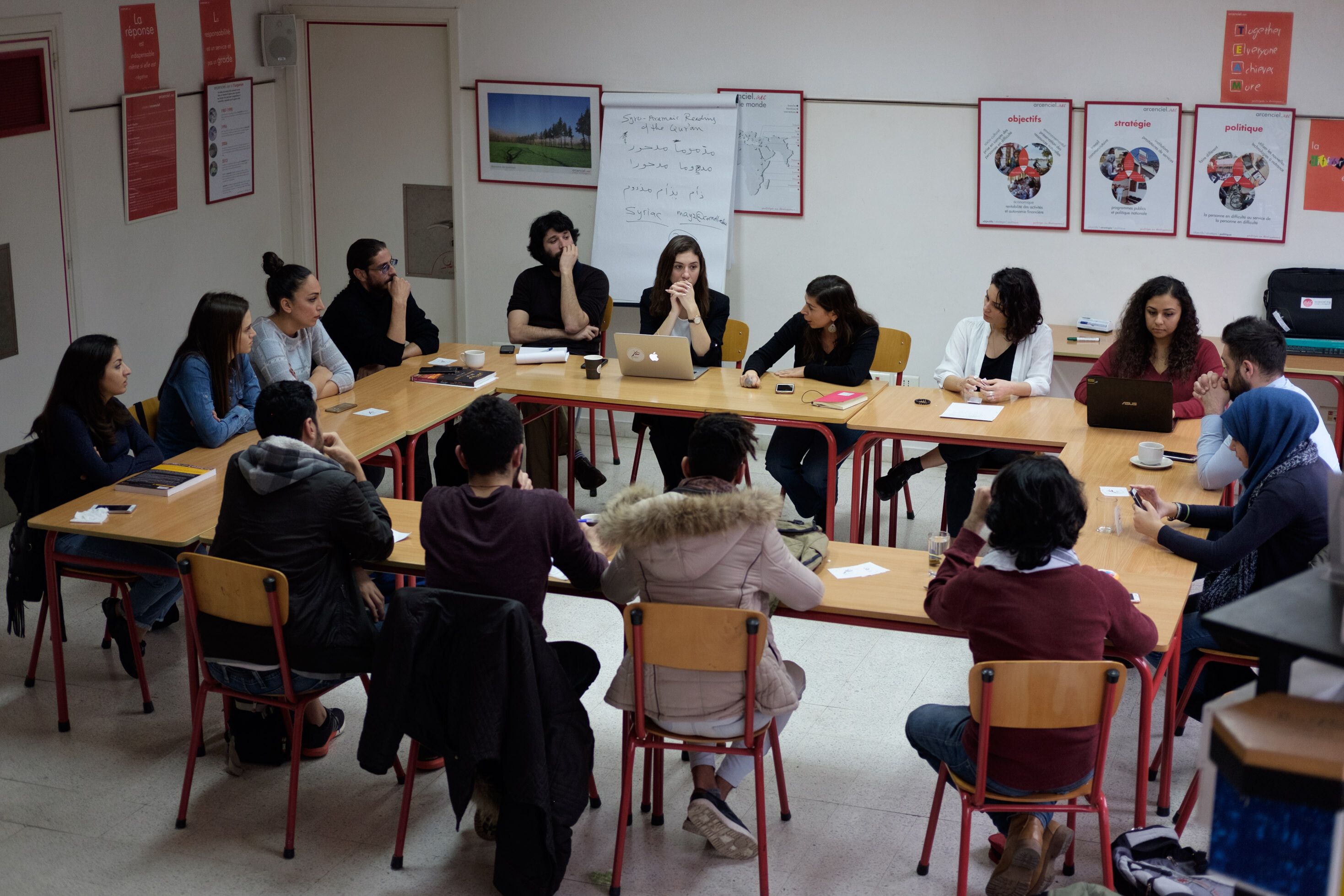
4. Ahlan Simsim
Context
This project proudly holds the distinction of being one of the esteemed 2023 WISE Awards winners.
A Life Shaped by Conflict
For countless children throughout the Middle East and North Africa (MENA) region, conflict and crisis have cast a long shadow over their most formative years. Displacement, chaos, and violence have marred their intellectual and social-emotional development, casting a shadow over their long-term prospects for economic prosperity, health, and overall well-being.
A wealth of evidence underscores the pivotal role of Early Childhood Development (ECD) interventions in nurturing these children and their families, enabling them to not only endure but also overcome traumatic experiences.
A Beacon of Hope: Ahlan Simsim
With generous funding from the MacArthur and LEGO foundations, Sesame Workshop and the International Rescue Committee (IRC) embarked on a transformative journey in 2018 by launching the Ahlan Simsim initiative. This endeavour was born out of the shared vision to bring early childhood development and playful learning to children profoundly affected by conflict and crisis in the Middle East.
Solution and Approach
Ahlan Simsim represents a life-altering initiative that seamlessly melds the IRC’s unparalleled expertise in crisis-impacted communities with the proven impact of Sesame Workshop’s educational media. At its core, Ahlan Simsim furnishes children in conflict-affected regions with the support, tools, and opportunities they need to learn, grow, and ultimately thrive. The initiative effectively combines and integrates an array of educational media resources, including the acclaimed Ahlan Simsim TV show.
These resources are harmoniously woven into sustainable, locally-owned program models, effectively delivered by the IRC, local civil society organisations, and government partners. The initiative further strengthens existing national systems to ensure that children continue to receive sustained support over the long term. Partnerships form the heart of this endeavour, with over 60 local collaborators, including 12 pivotal partnerships with national Ministries of Education, Health, and Social Development.
The programmes and services are meticulously designed to support not only children but also the adults who play crucial roles in their lives, from caregivers to service providers. These interventions can be implemented in informal and formal settings, leveraging both remote and in-person modalities, with implementation led by the IRC, local civil society, and governmental entities.
In tandem, Ahlan Simsim maintains a robust learning and advocacy agenda. The initiative diligently seeks to comprehend and communicate the profound impact of holistic ECD programming on children, contributing to a broader understanding of what truly nurtures early childhood development for children weathering the storms of conflict and crisis.
Impact and Future Development
To gauge the impact of their interventions, the teams employ an array of assessment methods, including evaluations, research, prototyping, content review, and cost analysis. Collaboration with New York University (NYU) has been instrumental in evaluating the impact of mass media and programming, yielding findings that underscore the positive outcomes for children participating in Ahlan Simsim programmes. These findings substantially contribute to the sector’s knowledge about what truly works in fostering early childhood development for children affected by conflict and crisis.
The IRC and Sesame are now actively investing in the design of the next phase of Ahlan Simsim, to deepen and expand its impact across current and new regions. Simultaneously, they are focused on sharing their accomplishments and insights with the world, thereby setting a new standard for how the international community responds to the needs of children grappling with conflict and crisis. They intend to steer the humanitarian sector towards a greater emphasis on early childhood development, recognising its paramount importance.
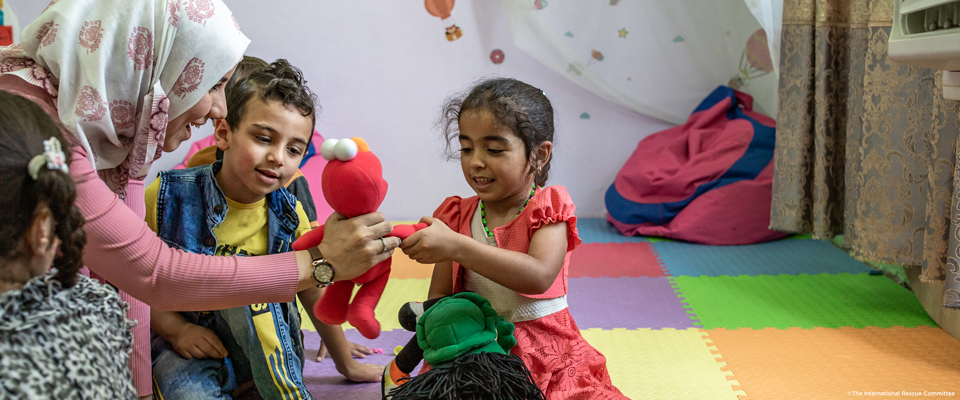
5. Nature-Based Education Networks
This ambitious undertaking is realised through nature-based and regenerative education, heritage interpretation, and the weaving of social bonds, all underpinned by a regenerative approach that extends across cultural, social, economic, and environmental dimensions.
OpEPA’s initiatives have cast a wide net, extending their influence to 26 of Colombia’s 32 departments, categorised within four core areas of focus: nature-based education, nature tourism, regenerative cultures, and the pressing issues of our planet, including climate change, biodiversity loss, and the sustainable utilisation of land and water resources.
At the heart of this transformative journey are the city-wide Biodivercity Nature-Based Education Networks. These networks serve as dynamic spaces for integration and active collaboration, bridging the gap between educational institutions and local stakeholders. Their primary objective is to foster a sense of ownership over green spaces while nurturing nature-based learning communities.
This endeavour first took root in 2015 with the establishment of the “Red de Colegios Cerros de Bogotá,” a school network characterized by active collaboration between 101 public and private educational institutions and eight organisational allies. The network’s primary thrust is to promote the thoughtful utilization of the Eastern Hills, a strategically vital ecosystem, through Nature-Based Education (NBE).
Solution and Approach
The visionary model set by OpEPA was replicated in collaboration with the Ministry of Environment, serving as a pivotal implementation partner in 13 “biodivercities” scattered throughout Colombia. In the process, 13 city-based nature-based networks were established, linking 145 schools and engaging 460 educators. The means to this end included in-person capacity-building workshops, online educational programmes, and the art of network weaving.
The Nature-based School Networks pivot around the consolidation of learning communities that infuse students with vital citizenship skills. These skills are the bedrock upon which harmonious relationships between people and nature are built, eventually nurturing planetary stewards dedicated to the greater good. The initiative also seeks to position students and educators as ambassadors of best practices and ethical behaviour in the face of pressing environmental and societal challenges.
Through its inclusive approach, which draws in students from diverse socioeconomic and cultural backgrounds within the city, the Network champions equity and inclusion. It leverages these diverse perspectives to nurture the environmental stewardship skills of students and communities alike. Moreover, the Network recognizes the city’s natural ecosystems as a living laboratory for learning, paving the way for the design and implementation of collaborative conservation projects.
Impact and Future Prospects
The central impact of this remarkable project is the activation of diverse learning communities deeply committed to Nature-Based Education. This initiative has breathed life into the notion of appropriation of green spaces within and surrounding urban areas.
As they look ahead, OpEPA envisions expanding their innovative approach, with the ultimate goal of making it the core educational component of the Biodivercities model, both in Latin America and on a global scale. The grand aspiration is to inspire cities across the world to embrace the concept of becoming nature-based learning cities, in turn fueling a global movement that recognises nature as a vital and vibrant learning environment across all fields of study.
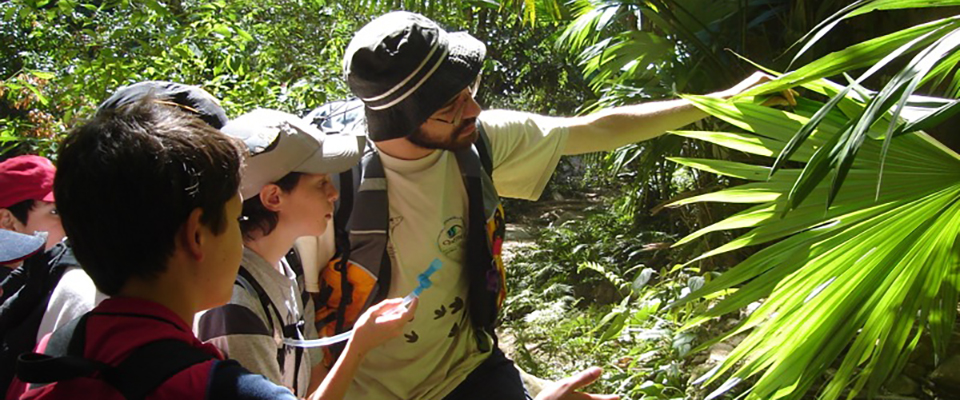
6. Catalyzing ECE at Scale (Rocket Learning)
About the Project
This project is one of the 2023 WISE Awards winners.
Context and Issue
Over 85 per cent of brain development occurs before the age of eight when low-income Indian children have almost no cognitive stimulation through institutions or at home. They are already falling behind their higher-income peers – 43 per cent can’t recognise alphabets, and 35 per cent can’t recognise numbers 1-9 in grade 1.
Solution and Approach
Rocket Learning builds early childhood and foundational learning at scale by connecting the government system, teachers/ anganwadi workers and parents, and driving community change by systemically leveraging technology, media, and social incentives.
Through our solution, we empower teachers/ anganwadi workers and parents as agents of change to deliver high-quality learning to 1 million children across 70,000 classrooms in 7 Indian states through its innovative, low-cost digital model that sends contextualised content in the local language via our “bot” over Whatsapp groups that function as vibrant digital communities. We then invite teachers/ anganwadi workers and parents to send us back their responses so that we can build continuous motivation through personalised real-time Nudges.
Impact and Future Development
Our solution has demonstrated strong learning gains (RL children are in the top 30% of their cohort), and is inherently cost-effective and scalable – our variable costs are 50c/child/year. Rocket Learning is committed to serving 5 million children and families in the next 3 years, and to creating models that can transform early learning across the global south.
